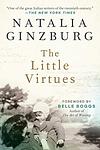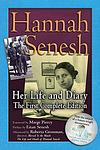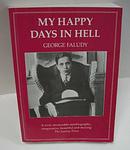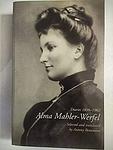The Greatest Hungarian, Italian, Austrian "Nonfiction" Books Since 1950
Click to learn how this list is calculated.
This list represents a comprehensive and trusted collection of the greatest books. Developed through a specialized algorithm, it brings together 305 'best of' book lists to form a definitive guide to the world's most acclaimed books. For those interested in how these books are chosen, additional details can be found on the rankings page.
Genres
Countries
Date Range
Reading Statistics
Click the button below to see how many of these books you've read!
Download
If you're interested in downloading this list as a CSV file for use in a spreadsheet application, you can easily do so by clicking the button below. Please note that to ensure a manageable file size and faster download, the CSV will include details for only the first 500 books.
Download-
1. Philosophical Investigations by Ludwig Wittgenstein
This book is a seminal work in 20th-century philosophy, presenting a detailed critique of the notion that our language directly corresponds to reality. The author argues that the meaning of words is not inherent, but rather derives from their use within specific forms of life. The book also introduces the concept of language games, suggesting that our understanding of language is akin to learning the rules of a game. The author further explores the limits of language, the nature of understanding, and the relationship between public and private language.
The 454th Greatest Book of All Time -
2. The Periodic Table by Primo Levi
"The Periodic Table" is a collection of short stories that use elements of the periodic table as metaphors to explore the author's experiences as a Jewish-Italian chemist before, during, and after World War II. Each chapter is named after a chemical element, reflecting its significant role in the story. The work provides deep insights into the human condition and the power of science, while also serving as a poignant memoir of survival during the Holocaust.
The 922nd Greatest Book of All Time -
3. The Constitution of Liberty by Friedrich von Hayek
This book is a comprehensive analysis of the concept of liberty, emphasizing the importance of individual freedom in political, societal, and economic contexts. The author argues that a free society, where individuals can act according to their own decisions and plans, is the most effective system for human progress. He also explores the relationship between law and liberty, the role of government in a free society, and the challenges to liberty posed by concepts such as social and economic justice.
The 1172nd Greatest Book of All Time -
4. Danube by Claudio Magris
This literary work is a rich tapestry that combines travelogue, history, and cultural analysis, following the journey of the river Danube from its sources in the heart of Europe to its delta at the Black Sea. As the narrative meanders through various countries, it delves into the complex history and diversity of the regions along the riverbanks, reflecting on the interplay of different cultures, languages, and peoples. The book is a contemplative exploration of the European spirit, examining the river as both a physical and metaphorical conduit through which ideas and influences have flowed, shaping the continent's past and present.
The 1323rd Greatest Book of All Time -
5. The Uses of Enchantment by Bruno Bettelheim
"The Uses of Enchantment" is a psychological analysis of fairy tales and their importance in childhood development. The book argues that these stories allow children to navigate their emotions and understand aspects of life they are yet to experience. By exploring various themes, such as separation anxiety, oedipal conflict, and sibling rivalry, through well-known fairy tales, the author demonstrates how these narratives contribute to a child's moral education and understanding of the human nature.
The 1788th Greatest Book of All Time -
6. On Aggression by Konrad Lorenz
"On Aggression" is a scientific study that explores the concept of aggression in both animals and humans from an ethological (study of animal behavior) perspective. The author argues that aggression is an innate and necessary instinct that has helped species survive and evolve. However, he also emphasizes that this instinct, when unchecked or misdirected, can lead to destructive behavior and violence. The book provides a comprehensive analysis of the biological roots of aggression, its role in the evolution and survival of species, and its implications for human society.
The 1825th Greatest Book of All Time -
7. The Drowned and the Saved by Primo Levi
This book is a deeply moving exploration of the Holocaust, written by a survivor. It delves into the horrifying experiences at Auschwitz, examining the psychological impact on the prisoners, the brutal behavior of the guards, and the complex moral dilemmas faced by both. The author also discusses the concept of memory and its unreliability, especially in the context of such traumatic events, and analyzes the ways in which the Holocaust has been represented and remembered in society. The book serves as a profound meditation on the human condition under extreme circumstances.
The 1838th Greatest Book of All Time -
8. Seven Years in Tibet by Heinrich Harrer
This book is a travel memoir that recounts the author's escape from a British internment camp in India during World War II and his subsequent journey through the Himalayas to Tibet, where he becomes a tutor and friend to the Dalai Lama. The book provides a detailed account of Tibetan culture, customs, and the political turmoil leading up to the Chinese invasion, as seen through the eyes of a foreigner who spent seven years living there.
The 1839th Greatest Book of All Time -
9. The Marriage Of Cadmus And Harmony by Roberto Calasso
"The Marriage of Cadmus and Harmony" is a unique exploration of Greek mythology. The narrative follows the journey of Cadmus, a Phoenician prince, and his marriage to Harmony, a goddess. The book delves deep into the complex and rich tapestry of Greek myths, presenting them as a continuous and ever-evolving story. It offers fascinating insights into the gods, heroes, and monsters of ancient Greece, while also drawing connections to modern life and thought.
The 1980th Greatest Book of All Time -
10. The Tao of Physics by Fritjof Capra
The book explores the parallels between modern physics and eastern mysticism. It draws connections between quantum mechanics, relativity theory and concepts in Hinduism, Buddhism, Taoism, and Zen. The author argues that the two seemingly disparate areas of study - physics and mysticism - both seek to understand the fundamental nature of the universe and that they do so in strikingly similar ways. The book challenges conventional thinking and encourages readers to see the world from a more holistic, interconnected perspective.
The 2443rd Greatest Book of All Time -
11. The Little Virtues by Natalia Ginzburg
"The Little Virtues" is a collection of essays that delve into the fabric of everyday life, exploring themes such as the intricacies of family relationships, the importance of personal growth and integrity, and the role of education and parenting. The author reflects on her own experiences, including her upbringing in Italy, the impact of World War II on her life, and her observations on the cultural and societal norms of her time. With a blend of personal anecdote and philosophical insight, the essays advocate for the pursuit of larger virtues—such as generosity, honesty, and courage—over the 'little virtues' like frugality and caution, suggesting that a life well-lived is one that embraces the full spectrum of human potential and kindness.
The 2642nd Greatest Book of All Time -
12. Three Case Histories by Sigmund Freud
"Three Case Histories" is a compilation of three of the most famous case studies by a renowned psychoanalyst, exploring the complexities of the human mind. The book includes the cases of 'Little Hans', a boy with a phobia of horses, 'The Rat Man', an obsessive-compulsive patient, and 'The Wolf Man', a wealthy Russian aristocrat suffering from a variety of psychoneurotic symptoms. The author uses these cases to demonstrate his theories on psychoanalysis, childhood sexuality, the interpretation of dreams, and the subconscious.
The 2674th Greatest Book of All Time -
13. Wittgenstein's Nephew by Thomas Bernhard
"Wittgenstein's Nephew" is a semi-autobiographical novel that explores the friendship between the narrator and his friend Paul, who is the nephew of the famous philosopher Ludwig Wittgenstein. The story takes place in Vienna and is set against the backdrop of the Austrian mental health system. The novel delves into themes of sanity, insanity, and the fine line that separates the two, while also offering a critique of Austrian society. It is a meditation on the nature of illness, both physical and mental, and the impact it has on personal relationships and one's perception of the world.
The 3006th Greatest Book of All Time -
14. Tongue Set Free by Elias Canetti
"Tongue Set Free" is a captivating memoir that explores the author's personal journey of self-discovery and identity formation. Through vivid and introspective storytelling, the book delves into the complexities of Canetti's multicultural upbringing, his struggles with language and communication, and his quest for freedom and belonging. With poetic prose and profound insights, the author reflects on the power of words, the influence of cultural heritage, and the transformative nature of embracing one's true self.
The 3449th Greatest Book of All Time -
15. Hannah Senesh by Hannah Senesh
This book is a collection of the diaries, letters, and poems of a young Jewish woman who emigrated from Hungary to Palestine in the 1930s, driven by her Zionist beliefs. She joined the Haganah and later volunteered for a daring military operation to parachute into Nazi-occupied Europe during World War II, with the aim of aiding Allied forces and rescuing Hungarian Jews from the Holocaust. Her writings reflect her courage, literary talent, and the depth of her commitment to her cause. Tragically captured, tortured, and eventually executed by the Nazis, she became an enduring symbol of bravery and sacrifice in the face of tyranny.
The 3464th Greatest Book of All Time -
16. The Future Of Democracy by Norberto Bobbio
In "The Future of Democracy," the author provides a critical examination of the concept and practice of democracy, exploring its historical evolution, inherent challenges, and potential future. The work delves into the tension between the ideals of democracy and the practical realities of governing, addressing issues such as the role of political parties, the influence of public opinion, and the impact of economic inequalities. The author argues for the necessity of continuous democratic reform and the importance of safeguarding democratic principles in the face of changing social and political landscapes, ultimately presenting a thoughtful reflection on the prospects and resilience of democratic systems in the modern world.
The 4373rd Greatest Book of All Time -
17. Bezzeg Az én Időmben by Klára Fehér
"Bezzeg Az én Időmben" is a reflective work that delves into the generational differences and societal changes in Hungary, offering a nostalgic look at the past through the lens of personal anecdotes and cultural observations. The book contrasts contemporary life with the experiences of previous generations, exploring themes of family, education, and social norms. It serves as a commentary on the evolution of Hungarian society, inviting readers to consider the implications of progress and the value of tradition in a rapidly changing world.
The 4477th Greatest Book of All Time -
18. My Happy Days In Hell by György Faludy
The book is an autobiographical account of a Hungarian poet's life during the mid-20th century, chronicling his experiences from his carefree youth through the rise of fascism and his subsequent imprisonment in a brutal labor camp. It is a tale of intellectual passion, political upheaval, and the resilience of the human spirit in the face of totalitarianism. The narrative captures the author's journey through a Europe ravaged by war and political strife, his encounters with notable literary figures, and his unyielding commitment to his beliefs and to poetry, even as he endures the hardships and absurdities of a communist regime.
The 4493rd Greatest Book of All Time -
19. I Have Lived a Thousand Years by Livia Bitton-Jackson
This memoir tells the harrowing story of a 13-year-old Jewish girl's survival during the Holocaust. The narrative follows her life from her quiet existence in Hungary through the horrors of Auschwitz and other concentration camps, and finally to her liberation and the struggle to rebuild her life in the aftermath of such trauma. The memoir is a powerful testament to human resilience and the will to survive against all odds.
The 4780th Greatest Book of All Time -
20. Il Mestiere Di Vivere by Cesare Pavese
The book is a deeply personal diary that chronicles the inner life of its author, a prominent Italian writer, over a period of more than a decade. It offers a raw and intimate glimpse into his thoughts, daily experiences, and struggles with existential questions, relationships, and his own creative process. The diary entries reflect on themes of solitude, despair, and the search for meaning, as well as the author's observations on literature, politics, and the human condition. The work is renowned for its literary introspection and the poignant exploration of the challenges inherent in the "craft of living."
The 5245th Greatest Book of All Time -
21. The New Science of Politics by Eric Voegelin
"The New Science of Politics" is a seminal work in political philosophy that explores the nature of political societies, the symbolism of political power, and the essence of modernity. It delves into the evolution of political thought, from ancient civilizations to the modern era, and critically examines the ideologies that have shaped the contemporary political landscape. The author argues that understanding the spiritual and religious dimensions of political reality can provide a more comprehensive view of society and governance. The book is a profound meditation on the philosophy of history and a radical critique of modern political ideologies.
The 5751st Greatest Book of All Time -
22. Crossing The Threshold Of Hope by Pope John Paul II
In "Crossing the Threshold of Hope," the author provides a profound exploration of his faith and addresses complex theological and philosophical questions about Christianity. Through a series of letters, he discusses the nature of faith, the existence of God, the role of the Church, and the challenges of contemporary moral issues. This book offers insights into his personal beliefs and provides guidance on how individuals can find hope and meaning in their lives through spiritual commitment and religious understanding.
The 6517th Greatest Book of All Time -
23. The Diaries by Alma Mahler
"The Diaries" is a personal and introspective account that offers a glimpse into the life of Alma Mahler, a prominent socialite and composer in early 20th-century Vienna. Through her diaries, Alma provides a vivid portrayal of her complex relationships, her struggles and triumphs in the artistic community, and her interactions with some of the most influential artists and intellectuals of her time. The entries reveal her inner thoughts, passions, and the challenges she faced as a woman navigating her identity and desires in a male-dominated society.
The 7132nd Greatest Book of All Time -
24. Seven Brief Lessons on Physics by Carlo Rovelli
This book is a succinct and enlightening introduction to the fundamental concepts of modern physics, presented in seven easy-to-understand lessons. The lessons cover topics such as general relativity, quantum mechanics, the architecture of the cosmos, particles, quantum gravity, probability, time, and the human perspective on these scientific wonders. The book aims to bridge the gap between the complex world of modern physics and the general public's understanding, making the often intimidating subject accessible and engaging for all readers.
The 7788th Greatest Book of All Time -
25. Journey To The Land Of Flies And Other Travels by Aldo Buzzi
This book is a collection of travel essays that take readers on a whimsical and insightful journey through various parts of the world. The author, with a keen eye for detail and a taste for the eccentric, shares his experiences and observations from his travels, ranging from the titular land of flies to the bustling streets of New York and the serene landscapes of Europe. His writing is infused with a mix of humor, reflection, and a deep appreciation for the cultures and cuisines he encounters, making this work a delightful read for those who enjoy literary travelogues and the exploration of foreign places through the eyes of a perceptive and thoughtful wanderer.
The 7901st Greatest Book of All Time
Reading Statistics
Click the button below to see how many of these books you've read!
Download
If you're interested in downloading this list as a CSV file for use in a spreadsheet application, you can easily do so by clicking the button below. Please note that to ensure a manageable file size and faster download, the CSV will include details for only the first 500 books.
Download






















